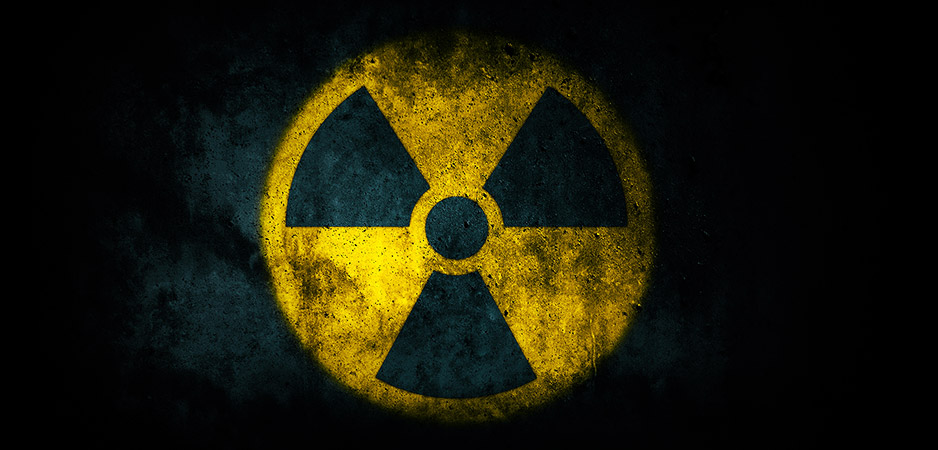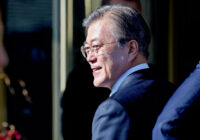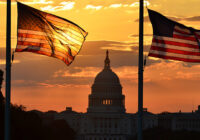On February 4, US President Joe Biden visited the US State Department, located down the street from the White House. He went to deliver a foreign policy message much needed by the men and women of that department and the nation. His audience was a receptive one, not surprising given that nearly all of the hundreds in attendance were career diplomats and civil service employees. He delivered exactly what they wanted to hear, affirming that, “You are the center of all that I intend to do … the heart of it.” That message dovetailed with his plans for an expansive reassertion of American diplomacy. It was necessary because American diplomacy had been absent for the last four years under the Trump administration.
Unchanged or Unchained: What’s in Store for the JCPOA?
The foreign policy agenda outlined by Biden variously referred to: fortifying ties with America’s key allies and partners in Europe and Asia; serving notice to Russian President Vladimir Putin that Biden will challenge, “in a manner very different from my predecessor,” Moscow’s cyber threats and authoritarian moves against neighbors; challenging America’s new nemesis, China, on human rights, intellectual property and global governance but also offering cooperation when it serves US interests; calling out Saudi Arabia on Yemen and Myanmar on the recent coup; and recommitting the US to defending democracy and human rights and to upping immigration numbers into the US.
The one major foreign policy challenge staring President Biden directly in the face but not mentioned was Iran. During his election campaign, he had promised to re-enter the 2015 Joint Comprehensive Plan of Action (JCPOA), the nuclear accord with Iran from which then-President Donald Trump had withdrawn the US in May 2018.
So Many Voices
Not mentioning the subject in this — Biden’s first major foreign policy address of his brief presidency — may have been a wise course of action. First, his secretary of state, Antony Blinken, and national security adviser, Jake Sullivan, have promised that the US will consult with America’s P5-plus-1 partners — Britain, France and Germany — as well as regional allies like Israel and Saudi Arabia before making decisions or taking any action. Moreover, at this stage, speaking too critically or harshly so soon would only trigger further stubbornness and resistance from an already recalcitrant Iran. And speaking too hopefully would ignite strong pushback from members of Congress resistant to almost anything short of Tehran’s capitulation.
Rejoining the JCPOA is replete with challenges that Biden’s former boss, Barack Obama, also faced but badly mishandled. Both Blinken and Sullivan have indicated that simply re-entering the nuclear agreement cannot be this administration’s sole objective. Any agreement with Iran that lasts into and through the next Republican administration must also address Iran’s growing missile arsenal and its meddling behavior in the Middle East, including in Iraq, Syria, Yemen, Lebanon and elsewhere.
Just getting these issues on the agenda with Tehran would be an achievement, given the Islamic Republic’s oft-stated opposition to such discussions. Nevertheless, Biden knows that to reach a genuinely enduring agreement that survives his presidency, these issues must be on the table. Iran’s supreme leader, Ali Khamenei, should also understand that for any agreement to offer his country predictability and stability in its international endeavors into the future, these issues are inescapable.
Iran isn’t the only party with whom the Biden administration will have to negotiate. First, there are America’s allies who are part of the accord and who, for the last four years, have battled to keep the JCPOA on life support. It will be Britain, France and Germany who will run the initial interference for the US before it can meet face to face with the Iranians. Furthermore, the US will have to have their firm support before it can reach out to the other P5-plus-1 members, China and Russia. So, winning their support will be vital to the administration’s success.
Second, there are America’s regional allies, most especially Israel, Saudi Arabia and the other Gulf states, who have a genuine — they might say existential — interest in the outcome of any future talks. There was considerable dissension among these countries in the run-up to the 2015 accord and in its aftermath. Some, most especially Israel, made their objections known publicly and undiplomatically. Nevertheless, their concerns were valid, and President Biden and his team will have to find a way to ensure that these governments’ concerns, fears and interests are taken into account.
Moreover, any dialog addressing the regional issues — whether on Iran’s malign activity in the Middle East or perhaps even the presence of US forces in the region — will likely have to include these countries. (How that might happen is a mystery, given that states like Saudi Arabia and Iran don’t yet officially recognize Israel.) What is essential for the Americans, however, is that these governments are somehow a part of the negotiations and that whatever results from the next round of negotiations is acceptable to the nations of the region most impacted. Blinken and Sullivan, chastened by the experience of 2015 and what came after, undoubtedly understand this.
The Invisible Partner at the Negotiating Table
Then, there is the final and likely most challenging party to future talks. That is the US Congress. Securing congressional approval for a follow-on agreement(s) and ensuring it endures beyond the Biden presidency will depend on winning that body’s approval. While Biden probably will not submit any new agreement to the Senate for approval, as the Constitution requires for formal treaties, he will nevertheless need to have at least its implicit support.
Biden cannot afford to make the mistake of Woodrow Wilson in 1918 with the League of Nations and President Obama in 2015 with the JCPOA. He must find a way to bring in key members from both the House and Senate, even if only indirectly, in order to ensure that whatever results reflects their concerns. If Biden and his team can satisfy the concerns of the other two major groups — America’s P5-plus-1 partners and regional allies — then they will likely have addressed many of Congress’ concerns. But he cannot afford either to take their support for granted or to neglect Congress. They will have to be engaged throughout the process.
Complexity (Times 100): Iran and All the Issues
Of course, there is also the heart of the issue: the longstanding distrust and animus between the US and Iran. The imperfect deal brokered by Obama and the withdrawal from it by Trump served to exacerbate these feelings among Americans and Iranians, respectively. So, the sides may be starting from a more difficult position than they did in 2012, when they initially began their dialog that culminated with the JCPOA. Hardliners on both sides have further hardened their positions, Republicans (and some Democrats, too) in the US and the all-powerful Islamic Revolutionary Guard Corps (IRGC) and its leadership in Iran. They’re not just polar opposites — they live at opposite ends of the galaxy.
Furthermore, the issues have been brought into stark relief as a result of the American exit and subsequent imposition of crushing sanctions on Iran, its leadership, banking institutions and the IRGC. The country’s economy is reeling, though it has managed to finally stabilize. But any notion or hope of significant growth that reaches rank-and-file Iranians and businesses is non-existent under US sanctions. In 2021 and beyond, a nation of some 84 million people must be a part of the international community and most especially the global economy. That can’t happen as long as US sanctions hang over Iran’s head. The choice is stark, albeit hard, for Iran’s leadership: continue on the path to nuclear capability or join the rest of the international community.
Despite Iran’s early declarations, an immediate US return to the JCPOA and suspension of sanctions prior to some of the aforementioned talks are a chimera. The Biden administration hasn’t taken the bait and shouldn’t. With sanctions in place, Biden has an advantage, no matter how much he may have opposed them in 2018.
The administration should use this advantage. So, at the very least, before rejoining the JCPOA, it should insist on Tehran’s acceptance of follow-on negotiations on: the various time horizons on Iran’s nuclear development with weapons implications; the range and numbers of missiles; more comprehensive inspections, including of military sites; and its involvement in countries of the region and support for various militias and groups almost universally viewed as terrorists. Iran’s hardliners see some of these issues — like missiles and support for militia groups in the Middle East — as necessary and even existential, but there may be no avoiding talking about them.
Iran doubtlessly has its chronic issues with the Americans, from threats of regime change to menacing military presence throughout the region, including US Navy aircraft carriers off its coast to American Air Force heavy bomber flights near its borders. It will also want some guarantees that whatever is agreed this time has some assurance of continuing. Then there are America’s non-nuclear-related sanctions on Iran, e.g., those relating to terrorism, terrorism financing, human rights, religious persecution, etc. These also are likely to become issues in any future talks.
The Main Thing
Hanging over all of this is the justifiably feared nuclearization of the Middle East. There can be no doubt that a nuclear-armed or -capable Iran would inevitably trigger similar strategic moves by Saudi Arabia and perhaps the United Arab Emirates and Egypt. Such a development in the world’s most volatile region is nightmarish.
Resolving these supremely difficult issues will come down to some hard diplomacy and earnest, patient dialog. There is no military solution. Nuclear weapons can never be one either. And, as the previous administration’s “maximum pressure” approach demonstrated, Iran cannot be sanctioned into capitulating.
In the words of Winston Churchill, “Meeting jaw to jaw is better than war.” It’s time for both sides to set their jaws to work.
The views expressed in this article are the author’s own and do not necessarily reflect Fair Observer’s editorial policy.
Support Fair Observer
We rely on your support for our independence, diversity and quality.
For more than 10 years, Fair Observer has been free, fair and independent. No billionaire owns us, no advertisers control us. We are a reader-supported nonprofit. Unlike many other publications, we keep our content free for readers regardless of where they live or whether they can afford to pay. We have no paywalls and no ads.
In the post-truth era of fake news, echo chambers and filter bubbles, we publish a plurality of perspectives from around the world. Anyone can publish with us, but everyone goes through a rigorous editorial process. So, you get fact-checked, well-reasoned content instead of noise.
We publish 2,500+ voices from 90+ countries. We also conduct education and training programs
on subjects ranging from digital media and journalism to writing and critical thinking. This
doesn’t come cheap. Servers, editors, trainers and web developers cost
money.
Please consider supporting us on a regular basis as a recurring donor or a
sustaining member.
Will you support FO’s journalism?
We rely on your support for our independence, diversity and quality.





